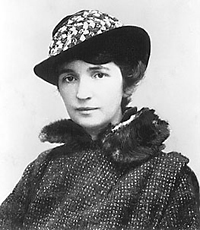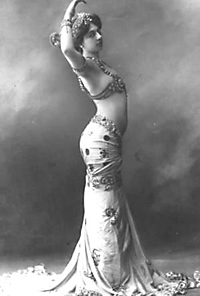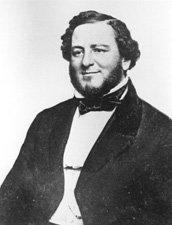Plays by Elaine Kendall
THE NOMINEE
Particularly timely, suspenseful and absorbing, The Nominee is a fictional play in which three Democratic US senators and three Republican senators meet privately to assess the qualifications of potential Presidential nominations for the Supreme Court. Well into their deliberations, they discover that the current President has already selected his sole nominee—a religious fundamentalist from North Dakota.
The drama takes placed on a unit set representing the office of Dierdre Cleary, the Democratic senator from Massachusetts; the following hearing with the President's choice, Judge Orton Mueller, is performed at a long table with the proscenium curtain closed. The time is the present.
The initial conversation among the six senators is both serious and humorous, as their clearly differing views define their personalities. As the hearing progresses, these conflicts and accords become increasingly intense as they confront the nominee with their questions about his record as a judge in his home state, concentrating upon his opinions on public education, the environment, and his decisions on civil rights cases. As the hearing grows more heated, the nominee is skillfully directed to recount his involvement in uranium mining and the claims of Native Americans for fatal illnesses brought about by exposure to excessive radiation. The government had promised financial redress for these claims, funds which were seldom paid to the victims or their struggling survivors. The hearing concludes with the President's naming his final choice for the vacant Supreme Court seat.
Running time is 90 minutes with an indicated intermission. Four men and two women of varying ages play the nominee and the senators.
TWO MARGARETS
 Based closely upon the complex life of Margaret Sanger, the ardent crusader responsible for Planned Parenthood, Two Margarets reveals the secrets of a carefully hidden personal history. The drama sets her extra-marital emotional attachments within the context of her remarkable professional accomplishments, filling the gap between the birth control icon and the impulsive and passionate woman who led the controversial movement.
Based closely upon the complex life of Margaret Sanger, the ardent crusader responsible for Planned Parenthood, Two Margarets reveals the secrets of a carefully hidden personal history. The drama sets her extra-marital emotional attachments within the context of her remarkable professional accomplishments, filling the gap between the birth control icon and the impulsive and passionate woman who led the controversial movement.
Beginning in 1889 and ending with Sanger's appearance on television in 1957, as she is aggressively interviewed by a young Mike Wallace, the play reveals a Margaret we were never allowed to meet. The play introduces the polar-opposite husbands William Sanger and Noah Slee; the leading writers and radicals who were her lovers and Margaret as a wife and mother. She appears as the idealistic young nurse-midwife, the radical Socialist, the embattled Birth Control advocate and the arch-enemy and eventual victor over the religious and political authority of the time.
The cast of seven consists of three women: Margaret, her sister Ethel and her benefactor Juliet Rublee. Four men play her husbands and lovers. Minor roles are voice-overs. Her son Stuart is played by the actor who is her first husband. Two Margarets needs a simple and veratile unit set. Running time is 90 minutes with an intermission.
THE TRIAL OF MATA HARI
 This 90-100 minute, 6 character drama is set in Paris during World War I, and covers the hectic two years (1915-1917) during which Mata Hari, then a celebrated dancer and notorious courtesan, was investigated, imprisoned, tried and executed for espionage. The Trial of Mata Hari is based upon documents recently translated from French and Dutch archives; material which makes her guilt highly questionable and indicates a conspiracy to make her a scapegoat for the appalling French defeat at Verdun. As French casualties approached 400,000, spy fever gripped the country. Apolitical by nature and compellingly sensual, Mata Hari lived as she pleased, consorting with army offices and diplomats regardless of their nationality. Holland was neutral in World War I, and as a Dutch citizen, she naively considered herself above the fray, unwittingly casting herself in a fatal role.
This 90-100 minute, 6 character drama is set in Paris during World War I, and covers the hectic two years (1915-1917) during which Mata Hari, then a celebrated dancer and notorious courtesan, was investigated, imprisoned, tried and executed for espionage. The Trial of Mata Hari is based upon documents recently translated from French and Dutch archives; material which makes her guilt highly questionable and indicates a conspiracy to make her a scapegoat for the appalling French defeat at Verdun. As French casualties approached 400,000, spy fever gripped the country. Apolitical by nature and compellingly sensual, Mata Hari lived as she pleased, consorting with army offices and diplomats regardless of their nationality. Holland was neutral in World War I, and as a Dutch citizen, she naively considered herself above the fray, unwittingly casting herself in a fatal role.
The play is designed for a unit set; the office of police Captain Georges Ladoux. There are two short scenes at small tables placed left and right in front of the closed proscenium curtain. The trial scene takes place in front of the closed curtain, at a rectangular table representing the austere military courtroom where Mata Hari is quickly tried and convicted. Mata Hari herself, is the only female role, though a dancer may open and close the play. Five men represent the two investigators, the military prosecutor, a German lover, and the French diplomat who was the only defense witness. A male actor doubles as the journalist who narrates the astonishing events immediately following Mata Hari's execution.
The Mata Hari monologue published by Smith & Kraus is in a book titled Best Women’s Stage Monologues and Scenes.
THE CHAMELEON
 Chameleon is based upon the extraordinary life of Judah P. Benjamin, the Louisiana attorney who became Confederate Secretary of War, then Secretary of State, and ultimately, the preeminent English barrister of his time. Although he was innocent of any conspiracy in Lincoln's assassination, Benjamin was certain he would be imprisoned and executed by enraged Union vigilantes. Before fleeing the American South for refuge in England, he burned all private papers, destroying the record of his Confederate past. Outwardly genial, witty and supremely articulate, the public persona of Benjamin revealed virtually nothing about his tumultuous private life. From the scanty record available, that superficial gloss effectively concealed a difficult youth, a troubled marriage to the French-Creole Natalie St. Martin, and a remarkable career marked by great achievement and significant misjudgment.
Chameleon is based upon the extraordinary life of Judah P. Benjamin, the Louisiana attorney who became Confederate Secretary of War, then Secretary of State, and ultimately, the preeminent English barrister of his time. Although he was innocent of any conspiracy in Lincoln's assassination, Benjamin was certain he would be imprisoned and executed by enraged Union vigilantes. Before fleeing the American South for refuge in England, he burned all private papers, destroying the record of his Confederate past. Outwardly genial, witty and supremely articulate, the public persona of Benjamin revealed virtually nothing about his tumultuous private life. From the scanty record available, that superficial gloss effectively concealed a difficult youth, a troubled marriage to the French-Creole Natalie St. Martin, and a remarkable career marked by great achievement and significant misjudgment.
As he is interviewed by Francis Lawley, the English journalist who hoped to write Benjamin's definitive biography, the buried details of that life emerge in dramatic memory scenes. Taciturn and evasive at first, he gradually warms to Lawley, recalling episodes of his youth and marriage; his unspoken emotional attachment to the wife of Confederate president Jefferson Davis; his miraculous escape to England, and the triumphs and disasters of a unique career. At the time of the interviews, Benjamin is 69 years old, living alone in London, long since deserted by his wife, who lives with their daughter in Paris.
The play is set in Benjamin's London flat, with 3 male and 3 female characters. Running time is 90-100 minutes.
15 Minute Comedy
THE “I” WORD
A 10-15 minute comedy, The “I” Word is set at a table for the four actors in a San Francisco trattoria. Friends since college, the two couples haven’t met for a few years until the New York pair stop in California on their way back from a trip to Vanuato, a remote island south of Australia. Jeff and Jenny are academic types recently home from a seminar at an Italian castle; Alan and Julia have become extreme travelers seeking the most primitive and undeveloped destinations they can find. The conversation among them begins genially, escalating into something else entirely. The “I” Word was chosen for a short play festival at Center Stage in Santa Barbara.
The "I" Word has been published by ArtAge Publications. Click here to read a FreeView and order a copy!
